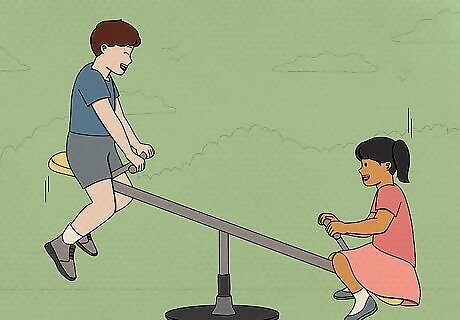
views
School is already a full-time job.

Students already spend approximately seven hours a day at school. Add in two hours of homework and that means students are now working more hours than their parents, leaving them frustrated and exhausted. Pile on the book reports, study guides, and essays that teachers regularly assign on weekends and holiday breaks, and homework prevents students from being able to relax and disengage from their studies. For years, teachers have followed the “10-minute rule” giving students roughly 10 minutes of homework per grade level. However, recent studies have shown students are completing 3+ hours of homework a night well before their senior years even begin.
Homework negatively affects students’ health.

Homework takes a toll physically. Recent studies have demonstrated that too much homework can disrupt a student’s sleep cycle, and cause stress headaches, stomach problems, and depression.
Homework interferes with student’s opportunities to socialize.

Childhood and adolescence are extraordinary times for making friends. It’s essential that students are given the proper time and opportunity to socialize through after-school programs and extracurriculars. Increased time spent on homework means decreased time spent on these communal activities which can be detrimental to students’ attitudes and social skills.
Homework hinders students’ chances to learn new things.

Students need time to self-actualize. We constantly stress the importance of creating well-rounded students, but how can they become well-rounded if they’re not given the time and space to develop their own interests? Instead of time students could spend learning to cook a new meal, drawing, reading, playing sports, or watching films that inspire them, homework forces students to reinforce lessons they’ve already learned in subjects they already know.
Homework lowers students’ enthusiasm for school.

Homework makes the school feel like a chore. Coming home from school, already tired, only to be forced to churn out more material on the same subjects day after day lowers students’ interest in academics altogether.
Homework can lower academic performance.

Homework is unnecessary and counterproductive for high-performing students. Studies have shown that students who already perform well tend to do worse on exams when given more homework. The high frequency of workload for material they already know leads to burnout and negatively affects their test scores.
Homework cuts into family time.

Too much homework can cause family structures to collapse. After-school hours are usually reserved for family bonding time. Students spending all this time on homework limits meaningful interactions with family members, stifling those relationships. Parents are also more likely to excuse students from household chores when they have excessive schoolwork, making the home feel less like a team and increasing tension around the house.
Homework is stressful for teachers.

Homework can also lead to burnout for teachers. While outside academic work is stressful for students, educators are also burdened with the responsibility of grading these assignments. Teachers already report high-stress levels. Eliminating homework would be one simple yet effective way to make their jobs and lives easier.
Homework is often irrelevant and punitive.

Students who don’t understand the lesson get no value from homework. Because homework is structured around lessons learned in class, students who do not comprehend it in the classroom won’t comprehend it at home. This makes for wrong or incomplete assignments which causes teachers to feel like they need to allocate more homework which leads to an ineffective, disciplinary cycle where those that need homework fail to obtain any of its benefits. There are even studies that have shown homework in primary school has no correlation with classroom performance whatsoever.
Homework encourages cheating.

Mandatory homework makes cheating feel like students’ only option. When homework is too difficult for students and must be completed in order to get a good grade, they’re incentivized to cheat on their take-home assignments. Not only does this encourage deviance outside the classroom; it makes the very reason for homework obsolete.
Homework is inequitable.

Homework highlights the achievement gap between rich and poor students. Not all students have access to the same resources. When homework is a necessary part of academic success, those with computers, quality at-home textbooks, a parent at home to fact-check, and safe homes to work in are given a significant advantage over those that don’t. This only widens the wealth gap as the high-performing students that can afford these luxuries are given more opportunities, feeding a cycle of inequality.
Other countries have banned homework with great results.

Countries like Finland have minimal homework and perform well academically. Instead of giving hours of extra work once the bell has rung, these countries take a more holistic approach to education. They enforce longer hours at school, but let students unwind and pursue personal interests once the school day is over. There are even some U.S. schools that have adopted this approach with success.




















Comments
0 comment